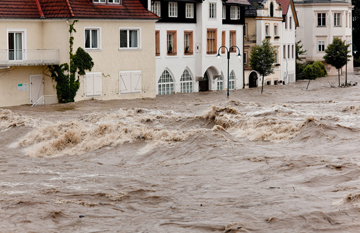 The recent Atlantic hurricanes that devastated many regions in the U.S. are being assessed for the health threats they pose. Physicians and public health authorities need to be alert to manage hurricane-related injuries and health conditions. As an experienced medical transcription company, we are fully prepared to help healthcare providers with their documentation tasks as they handle emergency situations.
The recent Atlantic hurricanes that devastated many regions in the U.S. are being assessed for the health threats they pose. Physicians and public health authorities need to be alert to manage hurricane-related injuries and health conditions. As an experienced medical transcription company, we are fully prepared to help healthcare providers with their documentation tasks as they handle emergency situations.
A recent report in the Orlando Sentinel says there is a lack of a database to effectively track trends in hurricane-related injuries. Dr. Kenneth Alexander, Alexander, chief of the division of infectious diseases at Nemours Children’s Hospital in Orlando classifies injuries that occur during the hurricane as follows: During the hurricane – Drownings, carbon-monoxide poisoning, ruptured appendix and trauma due to flying objects; injuries that occur afterward: Wounds, falls, respiratory infections, mosquito-borne diseases and diarrhea, and long-term injuries – post-traumatic stress.
We have put together other expert views published online on short-term and long-term injuries that can occur during and after hurricanes.
- Foot injuries: Podiatrists should expect to see more patients with foot injuries such as lacerations, puncture wounds, and cuts. Foot injuries after a hurricane are common. Burns can be caused electrical shocks from stepping on a live wire when walking in water. Insect and snake bites and cuts from walking barefoot and stepping on a sharp object are also common in stormy weather. While minor injuries can be treated with first aid, cuts that become infected can be dangerous if the person has not had a tetanus shot. Bacteria can enter the body and cause muscle contractions and other problems.
- Skin infections: Wet areas in houses and buildings are ideal environments for the buildup of mold which can lead to skin infections and rashes. New York Times reports that one Dallas-area shelter had 30 skin infections from Methicillin-resistant Staphylococcus Aureus (MRSA), an antibiotic-resistant form of staphylococcus bacteria. A report from the Centers for Disease Control and Prevention following Hurricane Katrina in 2005 showed 24 cases of hurricane-related wounds infected with Vibrio vulnificus or its relative, Vibrio parahaemolyticus, six of which were fatal.
- Orthopedic injuries: As the post-hurricane cleanup and rebuilding process begins, orthopedic admissions to emergency rooms can also be expected. Health officials have issued warnings about activities such as climbing ladders or chopping up trees, which can lead to sprains and fractures.
- Conditions caused by air pollution: As refineries and chemical plants shut down, they can give off toxic air pollution. Though this will not lead to serious problems right away, older adults with asthma and the immune-compromised face the risk of developing inflammations and other ailments. Breathing in the carbon monoxide fumes from portable generators can also be deadly. Long-term risks would depend on the pollutants that spewed into the air.
- Mosquito-borne diseases: While floods and high winds whisk away and destroy mosquitoes and their larvae, once the waters settle, the pests can return where water stagnates.
 Gastrointestinal problems: Exposure to flood water can lead to various diseases and gastrointestinal problems caused by bacteria such as Escherichia coli (E. coli), Shigella, and Vibrio vulnificus. Floodwaters can carry raw sewage, industrial chemicals and solvents and animal waste from fields and forests. According to the New York Times, Houston’s chief medical officer Dr David E. Persse is especially concerned about the norovirus, which causes vomiting, diarrhea and dehydration. While it is not a grave concern for healthy people, severe dehydration can prove fatal for frail older adults.
Gastrointestinal problems: Exposure to flood water can lead to various diseases and gastrointestinal problems caused by bacteria such as Escherichia coli (E. coli), Shigella, and Vibrio vulnificus. Floodwaters can carry raw sewage, industrial chemicals and solvents and animal waste from fields and forests. According to the New York Times, Houston’s chief medical officer Dr David E. Persse is especially concerned about the norovirus, which causes vomiting, diarrhea and dehydration. While it is not a grave concern for healthy people, severe dehydration can prove fatal for frail older adults.- Hypothermia: People who stand in cold water for a long time can develop hypothermia. Even in warmer temperatures, the body can become debilitated after some time. Covering exposed skin, staying warm and drinking hot fluids can reduce risk of hypothermia.
- Cholera: The Atlantic hurricanes have raised fears of cholera, according to the latest reports. Caused by the intake of the bacterium Vibrio cholerae, which is usually present in water or food that is polluted with fecal matter, cholera outbreaks occur when water pipes or sewage systems fail.
- Post-traumatic stress: Studies show that hurricanes can affect mental wellbeing in the long-term. The Washington Post reported that residents reported an increase in suicidal thoughts a year after Hurricane Katrina, residents. Post-traumatic stress disorder and depression also got worse.
Emergency physicians are committed to serving their communities even in the face of violent natural disasters like the recent hurricanes. In addition to giving the public advice on dealing with the situation and staying safe, they are doing all they can to treat hurricane patients. Reliable medical transcription companies will do their bit to help providers maintain accurate and timely patient health records and ensure sustainable, high quality care.


